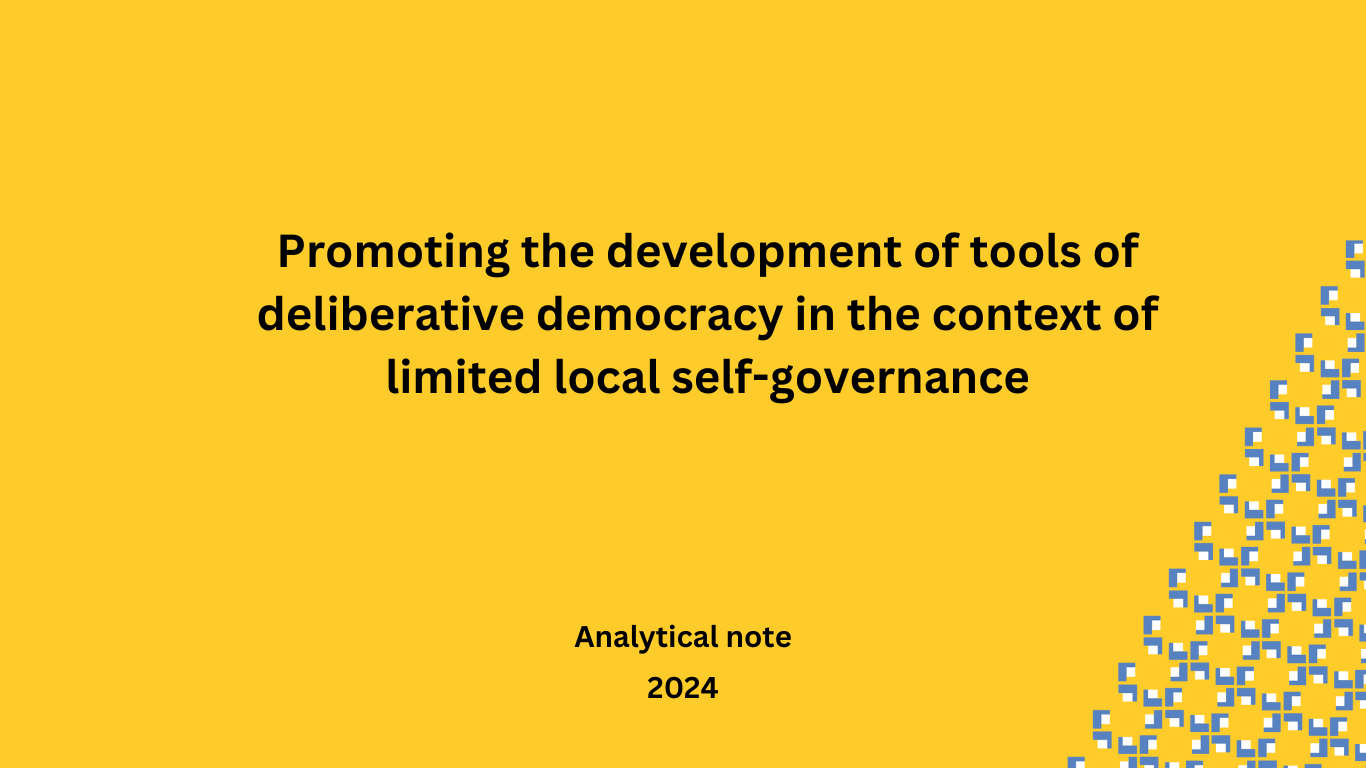Promoting the development of tools of deliberative democracy in the context of limited local self-governance

The analytical note presents the methodological recommendations of the study “Democratic Institutions for Communities with Limited Self-Governance”, which may be useful for the Cabinet of Ministers of Ukraine to fulfil the tasks of ensuring the resilience and recovery of Ukraine; relevant ministries and agencies; MPs and employees of the Verkhovna Rada committees involved in the rule-making process of self-governance, de-occupation and recovery; current regional and district military administrations (MA) and MAs of population centres; local self-government bodies, civil society organisations.
Despite Russia’s full-scale aggression, systemic humanitarian and economic consequences of the war, local self-governance in Ukraine continued to operate and played an important role in ensuring security and defence, maintaining the resilience of rear areas. Along with that, the operation of constitutionally mandated local self-government bodies (LSGBs) was impossible in some communities due to factors objectively caused by the security situation or the loss of their legitimate powers.
The establishment of military administrations (MAs) to exercise the powers of LSGBs in those communities was pivotal for preserving their resilience and functionality. At the same time, limited possibilities of implementing democratic procedures at the local level pose a risk of erosion of the principles of self-governance in communities and, in the long run, may complicate the reinstatement of LSGBs following the end of term of MAs. This task should be approached through launching a system of tools of deliberative democracy to preserve and strengthen communication of the public with authorities in local decision- making, public influence on local governance and local decision-making.
The use of the above tools should become widespread in communities with MAs for the period of martial law and in communities liberated from temporary occupation for the transition period to lay the foundations for reinstating legitimate LSGBs. Meanwhile, a wider range and strengthened effectiveness of tools of deliberative democracy are also important for communities with LSGBs in place to compensate for the risks to democratic processes arising due to the impossibility of holding elections to LSGBs in the context of martial law.
You can get acquainted with the text by following the link.
